- Home
- Alex Berenson
The Wolves Page 9
The Wolves Read online
Page 9
The cabbie looked over: Okay? Wells turned his palms to face the ceiling, raised them, up, up. “I promise, we get stopped, I’ll give you double the fine.”
“In a hurry, sir?”
“Life is short.”
“Especially if one has an RTA.”
“RTA?”
“Road traffic accident.”
Point, Henry. Still, he swerved into the center lane, cruised past the van to the open asphalt ahead. In the mirror, Wells saw a black sedan skimming through traffic, maybe a quarter mile back. A Mercedes a few years old, a C-Class with tinted windows. At this distance Wells couldn’t be sure about the ethnicities of the men in front, or whether anyone was in back. He couldn’t make the plate, either.
Wells wondered if he was looking at Duberman’s guys, the agency’s, maybe even the Chinese. Most likely Duberman’s. But how could Duberman have found him so fast? Had he put full-time watchers at the airport? Someone inside immigration watching for Wells’s passport in case Wells was dumb enough to enter using his real name?
Wells watched three seconds more, then tapped Henry’s shoulder. “Great. Thank you.”
Unless you’re planning to run immediately, lay back as soon as you spot the tail. There’s always a chance they won’t realize you’ve seen them. Not a great chance, but it has happened, and why not give yourself every possible edge? The life you save may be your own. Advice from Guy Raviv, Wells’s favorite trainer at the Farm, a surveillance expert from the days of KGB dead drops rather than ISIS death videos. Raviv was gone himself now. Lung cancer had stalked him as mercilessly as any jihadi. But his advice had saved Wells more than once.
They slowed, and Wells watched as the Mercedes closed to four cars behind. Not exactly subtle, but running surveillance was tough with a single vehicle. Anyway, subtlety wasn’t always the point.
“Someone following us?” Henry reached for his phone. “Shall I call the police?”
“No.”
“Sir?”
This guy might be too straitlaced for what Wells wanted. But he had to ask. “I want to hire you all day. Keep the meter running or we can set a rate.”
Henry looked back at the Merc. “Those men—”
“I promise, they’re only interested in me.” Though they might still hurt you.
“Who are they?”
“What I need to find out.”
Henry drummed his fingers on the steering wheel. Civilians in these spots were torn between fear and excitement, a once-in-a-lifetime chance for a break from routine.
“Why would they follow you?”
“Some people don’t like me.”
“What’s your name?”
“John Wells.” Wells saw no reason to be coy. The men in the Mercedes knew him.
“You’re American.”
“Just came from San Diego.”
“California.” Henry spoke the word with a wistfulness that Wells had heard before. Callleee-fornee-a. Outside the United States, people seemed to think of the state as an earthly paradise. Especially if they were older than fifty. “Friends with Snowden?” Henry grinned. Edward Snowden had fled to Hong Kong after leaking the National Security Agency’s secrets to the world. Though he hadn’t stayed long.
“Never met the man.”
“Joke.” Henry looked over. “For the day, five thousand HK.” Seven hundred dollars.
Excitement had won. It usually did. Henry had no idea what he had just signed up to do, or the price he might pay. But Wells needed a driver too much to explain the truth. Want a clean game, Evan? Stick to basketball. He reached for his wallet, peeled off ten $500 HK notes.
“Change of plans. We’re still going to the Peninsula. But when we get there, I’ll leave my luggage with you. You park in the garage and wait.”
The Peninsula had a shopping arcade that included exits at the back of the hotel, close to an entrance to the MTR, the Hong Kong subway system. Without luggage, Wells should quickly be able to disappear into the subway.
“No garage at the Peninsula. Valet only.”
“Fine. I get out, you take off. Cruise for a while. Pick up a fare, do your job. After a half an hour, find a place to park and wait. When I’m ready, I’ll call, tell you where to meet me.”
Though Henry would wait a long time for that call. As in forever. Wells had everything he really needed, the money and the passports, in the backpack on his lap. He could always buy new clothes.
“If they follow me—”
“They won’t.” Once Wells stepped out of the cab, the men in the Mercedes would lock on Wells. Henry was clearly an innocent civilian. By the time they realized that Wells had ditched his luggage, Henry would be gone. So Wells hoped.
“And where do you go?”
“I’ll work that out. But you’ll have my bags, so I promise you’ll hear from me. If you want extra money—”
“The price is the price. We agreed.” Henry sounded almost offended, making Wells feel even more guilty for involving him.
—
THE UNTOUCHED HILLS of Lantau Island continued on their right for several kilometers. Wells would hardly have known that one of the world’s most densely packed cities was only a few minutes away. Then they crossed a bridge and in the distance Wells saw Hong Kong itself. The island’s skyscrapers jutted from the harbor. Behind them were the lush green slopes of Victoria Peak. Duberman was up there, looking down on the city. And the world. Wells felt an unexpected fury in his chest at the man’s arrogance. Duberman was the ultimate one-percenter. He thought his fortune gave him license to do whatever he liked. Not only had he tried to dupe the United States into war, he was still dodging punishment. He had bet that not even the President could bring him to justice, and so far he’d won.
The airport highway merged into a narrower elevated road packed with trucks and taxis. Kowloon was all around them now, the island and Peak hidden. The cab sped past a complex of dozens of giant apartment towers, still more buildings rising around them. Then long blocks of older, lower buildings of dirty gray concrete, offering flashes of a hundred thousand lives, balconies stuffed with BMX bicycles and pigeon cages and what Wells could have sworn was a lime-green La-Z-Boy recliner warped in from the 1970s.
The Mercedes made no effort to close the gap. Wells suspected they’d picked up a second tail. Plenty of candidates lurked. The white Sprinter van three cars behind them, its sides suspiciously logo-free. The gray BMW 3 Series beside the Sprinter, two white guys up front.
Wells had assumed that Duberman wouldn’t try to pick him off in the middle of Hong Kong, risk killing civilians. Neither the local police nor the Communist government in Beijing could ignore a gangland-style daylight murder of an American visitor. Shafer and Duto would make sure the Chinese knew where to look. Wells figured that Duberman instead would hole up in his mansion, wait for Wells to attack, then try to make him shark bait in the South China Sea.
But maybe Duberman figured he could manage the fallout from a killing. Even so, Wells made himself relax. Unless he planned to jump off the highway to the surface roads thirty feet below, he couldn’t do anything about the tails, anyway.
“How far to the hotel?”
“Few minutes. Last exit before the tunnel.”
“When you get close, stay in the middle lane, drive like you’re going by, pull off at the last minute.” An obvious move, but the only way to see for sure who else was on them. Wells waited for Henry to object, but the guy just nodded and squeezed the steering wheel tighter. He was into it now. Amazing how fast fear slid into excitement, and vice versa.
Despite the congestion the traffic moved smoothly, and after five minutes they reached a blue sign that announced 6A, Tsim Sha Tsui—Salisbury Road. Henry braked hard enough to throw Wells against his seat belt and jerked the steering wheel left. The Toyota slid across two lanes, nearly fishtailing in
to a minibus packed with teenagers. Behind them, a black Nissan sedan tried to follow but couldn’t get by.
“Fantastic,” Wells said.
They came off the ramp and were only a few hundred yards from the harbor. Hong Kong Island loomed across the water. Beside them, the expressway sank into the entrance to the Cross-Harbour Tunnel. Ahead, the ramp swung over the tunnel entrance to become Salisbury Road, the boulevard that ran along the central Kowloon harbor.
“Peninsula there.” Henry pointed right.
Wells looked back. The Mercedes was coming hard after them. “Don’t stop until you get there. Run the lights.”
“Hong Kong taxis don’t run lights.”
“Make an exception.”
Henry shook his head.
One day Wells would get himself a real wheelman. Though he’d still take Henry over the drunk who’d ferried him around Istanbul four months ago. He had been chasing Glenn Mason, a CIA officer turned traitor, that night. He’d felt then like he was near the end of his quest to stop the United States from being lured into war. In reality, he had hardly begun.
Fortunately, the lights favored them. Only three lay between them and the hotel, and all stayed green. Two minutes later, they turned into the Peninsula’s entrance. The Mercedes tailed close, but made no effort to pull side by side.
—
THE HOTEL was a U-shaped beige building that filled a block along Salisbury Road. Everything about it broadcast wealth, luxury, and power. Besides the Rolls-Royce fleet, two spit-polished Ferraris and a low-slung sports car that Wells didn’t even recognize held pride of place in the front parking lot. Parking attendants in pressed uniforms watched the six-figure iron. Wells was glad he’d worn one of his new suits, even if the trans-Pacific ride had rumpled it. He was doubly glad that he was wearing Nikes and not dress shoes. He’d chosen sneakers to stay comfortable on the plane, but they would come in handy in the next few minutes.
A doorman hustled over.
“Checking in, sir?”
“Anything’s possible.” Wells stepped out, snapped the Toyota’s door shut. Henry rolled away, and Wells trotted for the hotel. He thought about waiting in the lobby, confronting his pursuers. But he had no idea if they were holding. Plus he sensed that they, whoever they were, wanted a public scene. In lieu of attacking him directly, maybe they hoped to involve the police, put him on a flight back to the United States before he’d even unpacked, a cheap but effective way of keeping him from Duberman.
The lobby was as lavish as the cars outside. Wells hustled past the overstuffed couches where the hotel served high tea each afternoon and turned left into the arcade. He was trotting now, pants rubbing against his legs. This new Hugo Boss suit fit a little too well.
At the back exit, Wells checked over his shoulder. Two men were following him, one white, one Chinese, both with a lean, hungry, clipped look, foxhounds on two legs. They wore unbuttoned sport coats, loose enough to hide pistols. They ran toward Wells as he pushed his way out.
The entrance for the Tsim Sha Tsui MTR station was almost directly across Middle Road. Wells dodged a delivery van, hurtled down the escalator two steps at a time. He found himself at the intersection of brightly lit tunnels that stretched east, west, and north. Overhead signs indicated that the station’s gates and platforms lay north. Wells ran that way, weaving through backpack-wearing students. He checked over his shoulder. His pursuers were still about a hundred feet back, and as far as he could tell their hands were empty.
As he neared the entrance gates, the passageway widened into a subterranean village, complete with coffee shops, fast-food restaurants, even clothing stores. The train platforms were another level down. Wells decided not to go for them. Buying a ticket would take too long, and he didn’t want to risk arrest by jumping the gates. He felt more and more that his pursuers wanted him to make just that kind of mistake. Instead he turned right, down another long tunnel, this one even more crowded than the first. A teenager who had her nose in her phone nearly slammed into him, but he spun past her like a running back dodging a tackler and stayed upright.
After several hundred feet, the tunnel intersected at a sharp left with a narrower passageway. Overhead signs indicated that the new tunnel led to three exits. Wells took it. At the least he’d force his pursuers to guess which exit he’d taken. He ran up a set of stairs and found himself on a narrow pedestrian street crowded with restaurants and shops. He was sweating now, his face flushed, a spectacle to the Chinese around him.
Overhead, the street followed the same diagonal as the passageway underneath. Wells turned and doubled back, looking for a taxi. At Mody Road, he saw one. “Stop!” The driver looked at Wells, hesitated, pulled over. Before the guy could change his mind, Wells wrenched open the door and dove inside.
“Happy Valley racetrack.” Wells had memorized twenty or so of the city’s big landmarks so that he wouldn’t have to waver in these moments. Hong Kong had two big tracks, Sha Tin on the mainland side and Happy Valley on the island. The driver looked at him, but the taxi didn’t move.
“No race today.”
Come on. Wells saw one of his pursuers, the white guy, come out of the exit, scan the street. The guy saw the cab and ran for it.
Wells pulled a $500 HK note from his suit pocket. “Go. Please.”
The cab eased into traffic. Wells wondered if his pursuer would reach under his coat and start blasting, but instead he only grinned at Wells and pointed to his eyes. Eye C U . . . Wells didn’t know what to make of the seemingly cavalier attitude. Hard to imagine Duberman’s guys acting that way. But who else could they be?
—
HAPPY VALLEY WAS CLOSED, as the cabbie had warned. Wells paid him off and walked down to the Causeway Bay MTR stop, mopping the sweat from his face. After ninety minutes shuffling from train to train, simple countersurveillance, he found himself back in Kowloon’s Mong Kok district. In a no-name electronics store Wells bought four low-end phones, Chinese brands with unfamiliar names, and a dozen SIM cards. He wondered if he should call Henry, but he couldn’t take the chance that his pursuers had gotten the cab’s plate and tracked him down. Instead he texted Garry Wright, the station chief. An answer came back in seconds. Wright had obviously been waiting. Running late?
Traffic problems, Wells wrote. All clear now.
U sure?
Yes.
A longer pause this time. Wells guessed that Wright was considering backing out. Then: 186 Hong Ling Street, #605. 1600. They had arranged to use a simple code for their first meet. The street address would have an extra 1 in front, the room number would be one floor higher than the real room, the meeting time one hour later. So Wright wanted to meet in suite 505 of 86 Hong Ling at 1500, 3 p.m.
Forty-five minutes from now. Wells found a local map at a 7-Eleven. The stores were weirdly ubiquitous here. Hong Ling was only a few blocks away. Apparently, Wright liked Mong Kok for meetings, too.
—
THE BUILDING was blocky and concrete and stuffed with massage parlors. Wells ignored the elevator and trudged up the fire stairs, which smelled faintly sweet, like they’d been sprayed months before with cheap perfume. The stairs and the fifth-floor hallway were empty. A pinhole camera was mounted above the door to 505, and its lock snapped open before Wells knocked.
Inside, Wells found himself in an apartment smaller than a one-car garage. A kitchenette with a hot plate and a pint-sized fridge occupied the wall to his right. The only window stared into a concrete airshaft. The ceiling fan dangled low enough to give Wells a haircut. Wright sat on a neon yellow couch that belonged in a home for the blind. A pistol sat on the table in front of him, a laptop beside it.
“Clean?”
“Yeah.”
“Water in the fridge. Look like you could use it.”
Wells grabbed a bottle of water and sat. Wright hadn’t gotten the job on his looks. He was c
hubby and unhandsome. His eyes were pouchy, half-masted, his skin sallow, vaguely jaundiced. As if the years he’d spent in East Asia had seeped into his blood. He reminded Wells of Shafer, and Wells liked him straightaway.
Though he wasn’t sure the feeling was mutual.
“Welcome to my happy home,” Wright said.
“Trying to win a Guinness competition for World’s Crappiest Safe House?”
“I wanted a place I could pay for out of petty cash. Only me and my DS”—director of security—“know it exists. Unless you messed it up. Did you?”
“I picked up a tail at the airport. Were they yours?”
“You wouldn’t have seen ours.”
“These guys wanted me to see them.”
“Round or slant?”
Wells needed a moment to understand. Eyes.
“One each.”
Wright grunted in surprise. “Can’t have been the Chinese, then. They don’t trust white folk enough to team up. And you think they meant you GBH?” Grievous bodily harm.
“Not sure. They had a chance. It would have been messy and public, but it was there. They didn’t take it.”
“Get the plate? We have access to the Hong Kong database and a lot of China, too.”
Wells shook his head. “Could Duberman have an in at the airport?”
“The Macao casinos are connected at the top hotels here. If big players come to Hong Kong, they want to know. But I’ve never heard they have an in at HKIA. Maybe his guys leaned hard on somebody at an immigration counter.”
But Wright sounded doubtful, and the theory seemed like a long shot to Wells, too.
“You know him well.”
“Yes and no. After Gamma took off, this was about eight or nine years ago, we started paying attention. He bought the mansion seven years ago. Wanted something that would really impress the whales. You know much about gambling in Macao?”
“Just that it’s huge.”
“Correct. Hardly existed before 2001, a couple crummy casinos in downtown Macao. Now it’s way bigger than Vegas. The biggest players come from the mainland. Guys betting a hundred thousand dollars a hand on baccarat. Or more. But they want a lot of hand-holding. One reason that Duberman’s so big here is that he gives it. Even before he moved in this year, he was here glad-handing these guys two or three times a year.”

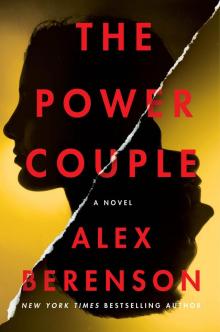 The Power Couple
The Power Couple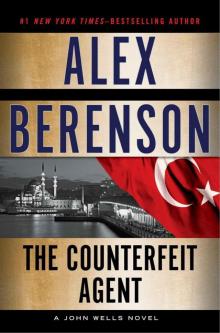 The Counterfeit Agent
The Counterfeit Agent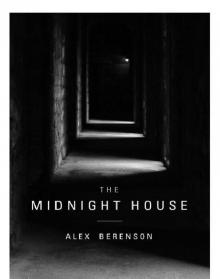 The Midnight House
The Midnight House The Prisoner
The Prisoner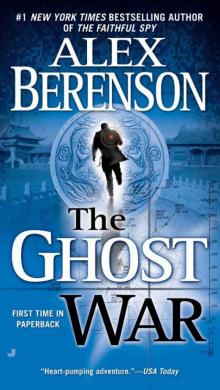 The Ghost War
The Ghost War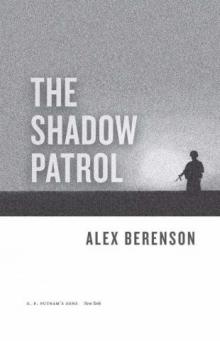 The Shadow Patrol jw-6
The Shadow Patrol jw-6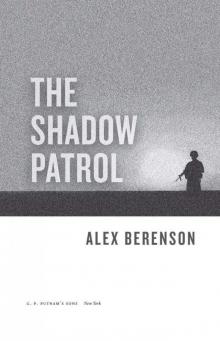 The Shadow Patrol
The Shadow Patrol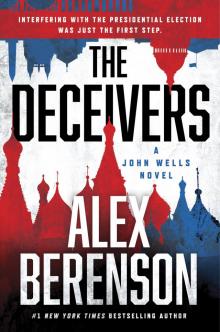 The Deceivers
The Deceivers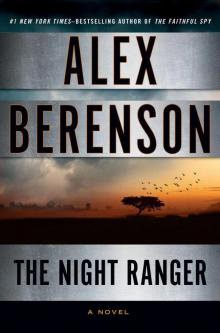 The Night Ranger jw-7
The Night Ranger jw-7 The Faithful Spy
The Faithful Spy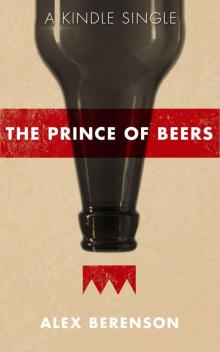 The Prince of Beers (Kindle Single)
The Prince of Beers (Kindle Single)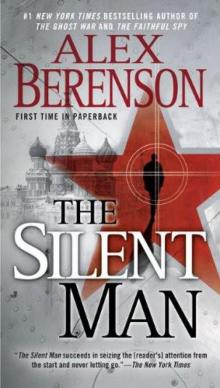 The Silent Man jw-3
The Silent Man jw-3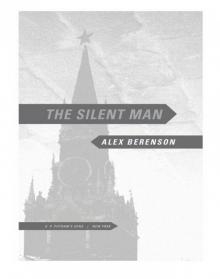 The Silent Man
The Silent Man The Wolves
The Wolves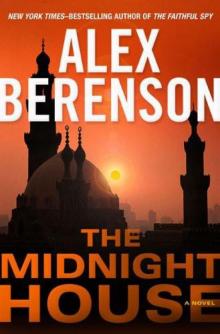 The Midnight House jw-4
The Midnight House jw-4 The Ghost Agent
The Ghost Agent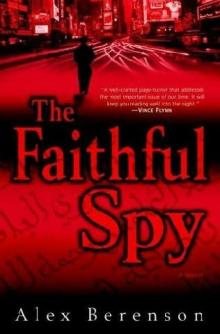 The Faithful Spy jw-1
The Faithful Spy jw-1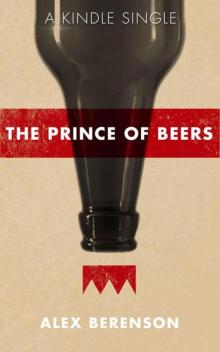 The Prince of Beers
The Prince of Beers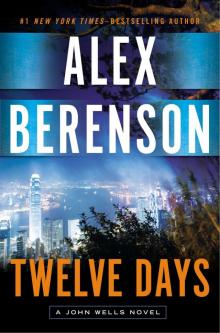 Twelve Days
Twelve Days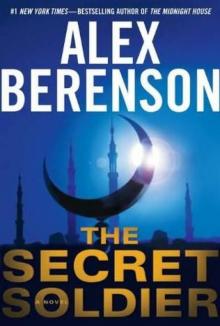 The Secret Soldier jw-5
The Secret Soldier jw-5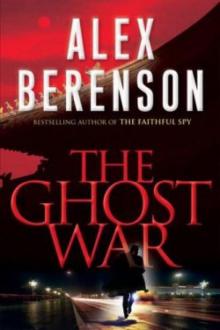 The Ghost War jw-2
The Ghost War jw-2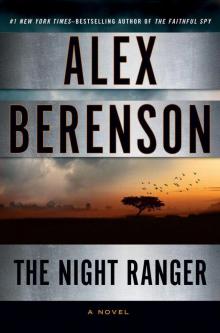 The Night Ranger
The Night Ranger